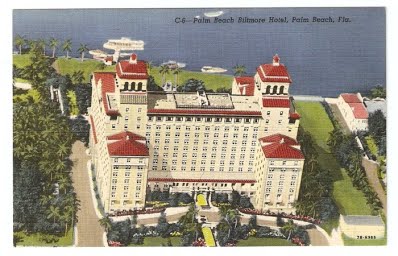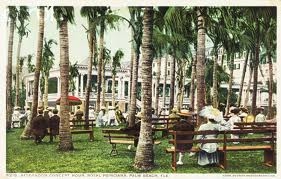 ®
®


 ® ® |
 |
 |
| Palm Beach County, FLGenWeb State Coordinator: Jeff Kemp | Assistant State Coordinator: Tricia Aanderud County Coordinator: Available |
Home | Archives | Cemeteries | Census | Cities & Towns | History | Military | Miscellaneous | Vital Records | Volunteer | What's New

Palm Beach County is located in the southeastern part of the State of Florida and lies directly north of Broward County and Miami-Dade County. According to a 2019 census report, the county had a population of 1,496,770, making it the third-most populous county in the state of Florida and the 25th-most populous county in the United States. The largest city and county seat is West Palm Beach. Named after one of its oldest settlements, Palm Beach, the county was established in 1909, after being split from Dade County. The county's modern-day boundaries were established in 1963.
Palm Beach County is one of the three counties in South Florida that make up the Miami metropolitan area, which was home to an estimated 6,198,782 people in 2018.
The area had been increasing in population since the late 19th century, with the incorporation of West Palm Beach in 1894 and after Henry Flagler extended the Florida East Coast Railway and built the Royal Poinciana Hotel, The Breakers, and Whitehall. In 1928, the Okeechobee hurricane struck Palm Beach County and caused thousands of deaths. More recently, the county acquired national attention during the 2000 presidential election, when a controversial recount occurred.
Palm Beach County is one of the three counties in South Florida that make up the Miami metropolitan area, which was home to an estimated 6,198,782 people in 2018.
It leads the state in agricultural productivity; agriculture is Palm Beach County's second-largest industry, after real estate development. In undeveloped (central and western) Palm Beach County there is significant tropical agricultural production, especially nurseries, truck crops (vegetables), and sugar cane. Palm Beach County has been called the "Winter Vegetable Capital" of the nation.
Although not created until 1909 (from a portion of
Dade County), the history of the Palm Beach County (PBC) region and its
non-Indian pioneer settlers extends back to mid 1800s. The first permanent
non-Indian settlement was probably the U.S. Army fort built in Jupiter in 1838.
When the Jupiter lighthouse was constructed in 1860, civilian settlers came to
the area. The construction of the Lake Worth Celestial Railroad, and later the
Florida East Coast Railroad, opened up travel to the region and encouraged
population growth. In 1894 the City of West Palm Beach was incorporated, making
it the oldest municipality in the County. In the early 1900s Palm Beach County
experienced its first growth spurt which led to the creation of three new
counties from its original boundaries: Broward (1915), Okeechobee (1917) and
Martin (1925). Palm Beach County's land area alone is approximately 2,023 square
miles (2,578 square miles including lakes).

With wealthy coastal towns such as Palm Beach, Jupiter, Manalapan, and Boca Raton within its limits, as well as equestrian mecca Wellington and golfing haven Palm Beach Gardens, Palm Beach County is Florida's wealthiest county, with a per capita personal income of $44,518 as of 2004.
Counties adjacent to Palm Beach
(c) 2007-2022
Site last updated: September 2022